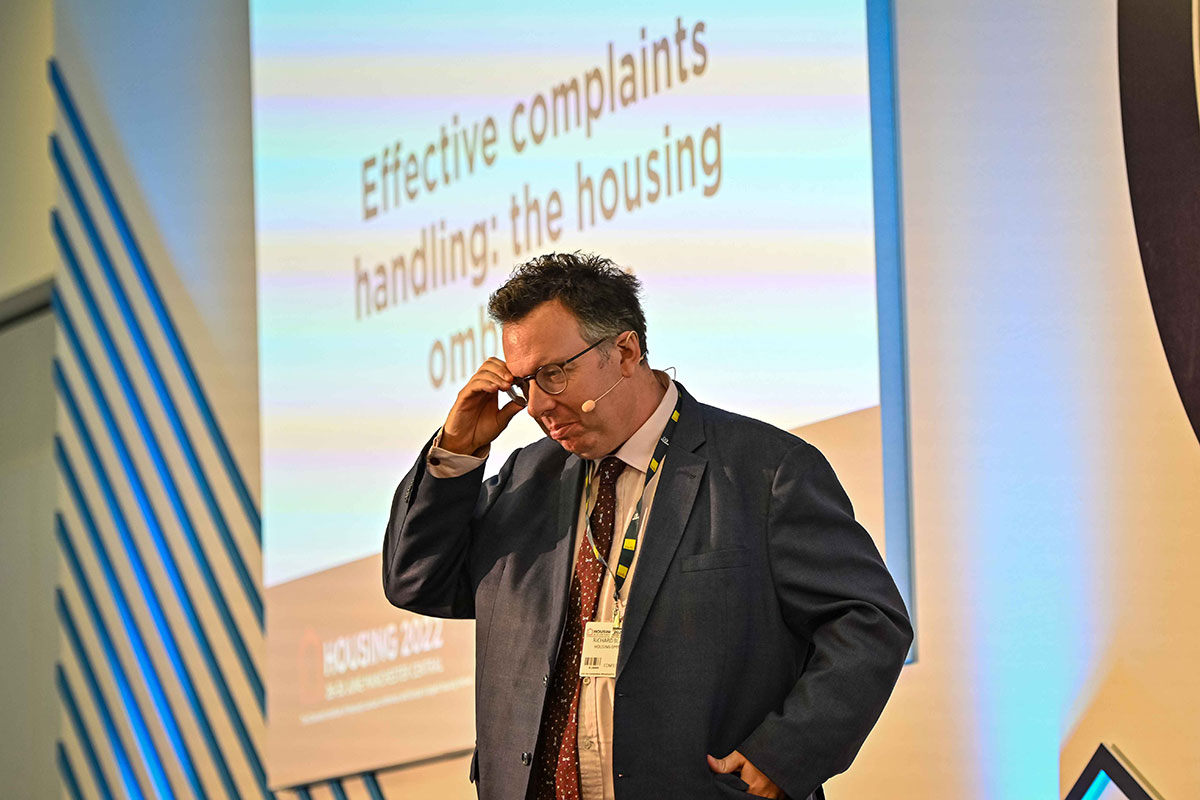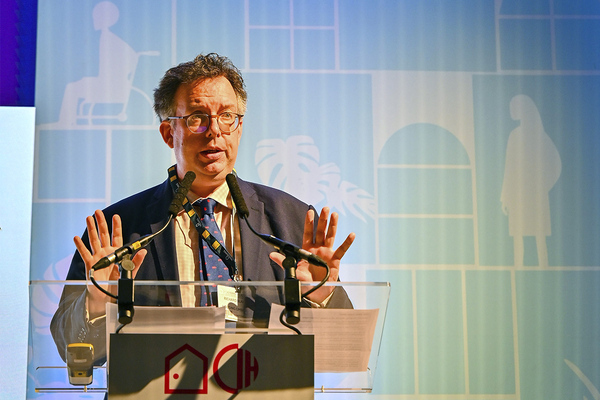You are viewing 1 of your 1 free articles
Ombudsman proposes 40% fee increase and ‘polluters pay’ model
The Housing Ombudsman is proposing to increase its payable fee per home by 40% to £8.03, up from £5.75 last year.

According to its draft business plan for 2024-25, the watchdog is also proposing a ‘polluters pay’ fee model, which could involve different rates for landlords that bring proportionately more complaints to the ombudsman and have higher than average maladministration rates.
Alternatively, individual maladministration findings could trigger higher fees.
The ombudsman launched a consultation on its business plan for the coming year on Tuesday.
It is seeking views from residents, landlords and their representative bodies on its plans to improve local complaint-handling and, as a result, reduce the ongoing significant increases in demand for its service.
Richard Blakeway, the housing ombudsman, told Inside Housing that the demand for the complaint service is “unprecedented”.
In the first three quarters of 2023-24, the ombudsman found maladministration in 72% of the cases it investigated, up from 59% in 2022-23.
It experienced a 91% increase in cases in the first nine months of the year, compared to the same period last year.
Compensation ordered now stands at £3.7m, compared to £1.1m in 2022-23, while the watchdog made 14,000 orders for landlords to put things right, compared to 6,500 the year before by quarter three.
Mr Blakeway said: “There is no indication that casework volumes are going to decline at any point in the near future. That’s a really big structural shift which is happening in the sector.”
He said the sector has responded “to an extent” already, but that it “needs to go further”.
“Because it’s not just an increase that we’re seeing, but it’s also an increase in what we’re upholding. It’s just unprecedented.
“We’ve really stepped up to investigate cases in a timely way. Last month, we completed over 600 investigations in one month.
“That would have been half a year’s work when I started at the ombudsman four years ago.”
Social landlords are coming under increasing regulatory pressure, including from the new consumer standards, the Social Housing (Regulation) Act, and the Building Safety Act.
The consultation document states: “For our members, the pressures caused by the operating environment are unlikely to ease in the near future.
“Further provisions from the Social Housing (Regulation) Act, designed to drive improvements in service delivery, will also come on-stream including compliance with the statutory Complaint Handling Code and the proactive consumer regulation regime while other measures are consulted on and finalised, for example, Awaab’s Law and minimum energy efficiency standards.
“A general election may also add uncertainty and some disruption. Overall, 2024-25 is likely to be a difficult year for social landlords and, as a result, we expect demand to continue to increase at significant levels.”
The ombudsman said that due to the “volatile external operating environment”, it cannot forecast with certainty the expected full-year demand growth for 2024-25. But its plans assume that demand will increase by between 50% and 80% compared to 2023-24.
The document proposes an increase in membership fee from £5.75 to £8.03.
The latter figure was reduced from £9.16 as the organisation was unable to recruit to all planned roles in-year, and “will use the resultant deferred income to reduce the total fee to a payable fee”.
According to the document, the fee has been calculated to “support sustainable increases in caseworker headcount” and “deliver more determinations in the face of continuing significant demand increases”.
“The fee also includes the cost of delivering the new powers and duty conferred on us through the Social Housing (Regulation) Act, one-off costs to support our transition to a larger organisation and make our ways of working more effective and efficient, planned capital expenditure and the impact of inflation,” it said.
One of the main priorities for the business plan is to improve local complaint-handling.
It aims to do this by monitoring compliance with its statutory Complaint Handling Code, but also driving better landlord complaint-handling behaviour through its fee regime and a potential ‘polluters pay’ model.
“This could potentially be achieved by charging more per home to those who proportionately use our service more and have the highest maladministration rates, or a polluter pays model where both a membership fee and a cost per case are charged.
“In the year to date, we have dealt with complaints from 42% of our membership. It should be noted that any change to our fee regime would require the approval of the secretary of state and the Treasury,” the document said.
Mr Blakeway said: “There is very strong emphasis in this business plan on what we can do to support landlords to resolve complaints themselves earlier.”
He said the service is working with a number of landlords with above-average complaint levels, which includes large, medium and small organisations.
Mr Blakeway added: “There will always be some landlords who will have a relatively large number of cases with us because of the scale of their operations. But there are also some landlords who you wouldn’t expect to see who we’ve identified.
“It’s a mix of housing associations and local authorities, it’s a mix of geography, and it’s a real mix in size.
“We recognise that landlords are doing more on complaint-handling, most landlords are really focused on this. They’re putting in more effort to improve complaint-handling and that’s really, really positive.
“But what we’re seeing at the moment would suggest that still more needs to be done.”
The document asks if respondents support a polluters pay model, and if yes, which alternative models they would support:
-
Differential fee rates for those that bring proportionately more complaints to the ombudsman relative to the number of homes they own and have higher than average maladministration rates
-
Membership fee plus a charge per case regardless of outcome
-
Membership fee plus differentiated charges per case, with higher charges where maladministration is found
-
Something else – please state
Mr Blakeway said: “It’s quite important to start to explore whether or not we should have a fee model which also incentivises effective local complaint-handling but doesn’t disincentivise complaints being raised.
“What we don’t want is this to drive complaints underground, but we also think it’s important to think about how we ensure that our fee reflects outcomes as well. I think it’s important to test this with the social housing sector.”
The consultation will be open until Friday 5 April.
In January, the Regulator for Social Housing revealed a 1.5% increase in landlord fees for the first quarter, but said it still plans to double the amount large providers pay in the long term.
Sign up for our asset management newsletter
Already have an account? Click here to manage your newsletters











